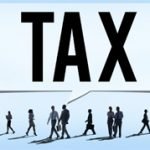Konu Başlıkları
ToggleDue to the coronavirus (COVID-19/COVID) crisis, a number of COVID relief measures have been put in place to ease the economic burden on people. While the COVID pandemic is primarily a health issue, it is having a significant impact on all aspects of our lives and is likely to continue to do so for years to come. It is possible to avoid being exposed to and contracting the COVID virus by following the precautions recommended by health experts and authorities. But the economic and financial consequences of the COVID pandemic are much more difficult to avoid.
Today we are experiencing the worst economic crisis since the 1930s. Many businesses have been forced to close due to government directives and/or have had to lay off employees due to financial difficulties. Even if businesses did not close completely during this period, many people had to leave their jobs temporarily or permanently due to their own health problems, the health problems of their relatives, or to take care of their children because schools and nurseries were closed. The COVID benefits outlined below are intended to support people who are experiencing economic hardship due to the COVID pandemic.
Economic Impact Payments / Stimulus Checks

The Coronavirus Relief and Economic Security (CARES) Law, which entered into force on March 27, 2020, provides for an Economic Impact Payment of up to $1,200 for individuals ($2,400 for joint tax filers) and up to $500 per qualifying child ($3,400 for a family of 4) as a direct COVID relief. Individual taxpayers are entitled to full payment if their total adjusted gross income is $75,000 ($150,000 for joint tax filers) or less. For incomes above these limits, the payment amount is reduced by $5 for every $100. Therefore, individual taxpayers with no children and incomes of more than $99,000 ($198,000 for joint tax filers) are excluded from the economic impact payment.
Most people did not need to do anything to receive their stimulus check. The Internal Revenue Service (IRS) calculated and sent Economic Impact Payments to beneficiaries using 2019 or 2018 tax returns or SSA-1099/RRB-1099 forms. For those who did not file a tax return, receive an Economic Impact Payment, or register to receive a payment in 2019, the deadline to apply for an Economic Impact Payment is October 15.
COVID Accommodations for Employment
 The health risks and economic disruption caused by the COVID pandemic are affecting a large number of workers. Already, some have lost their jobs, others have seen their earnings decline, while others have had to leave their jobs due to health problems or to care for their children. Many others are facing the same risks. Laws passed in response to the COVID crisis have introduced some COVID relief for workers in different situations: up to 12 weeks of paid leave, tax relief for employment protection and extended unemployment benefits.
The health risks and economic disruption caused by the COVID pandemic are affecting a large number of workers. Already, some have lost their jobs, others have seen their earnings decline, while others have had to leave their jobs due to health problems or to care for their children. Many others are facing the same risks. Laws passed in response to the COVID crisis have introduced some COVID relief for workers in different situations: up to 12 weeks of paid leave, tax relief for employment protection and extended unemployment benefits.
Extended Paid Medical and Family Leave
On March 18, 2020, the Families First Coronavirus Response (FFCRA) Act became law, requiring employers covered by the law to provide employees with sick leave or extended health and family leave due to COVID-19. These provisions of the FFCRA apply to certain public entities and private sector businesses with fewer than 500 employees until December 31, 2020.
Employees of employers covered by the FFCRA are entitled to the following paid leave rights:
- 2 weeks (up to 80 hours) paid leave for own health needs. In this case, the employer will be entitled to a tax deduction at the rate of $511 per day and up to $5,110 in total.
- 2 weeks (up to 80 hours) of paid leave for medical needs of relatives. In this case, the employer will be entitled to a tax deduction of two-thirds of the amount paid to the employee, up to $200 per day and up to $2,000 in total.
- Up to 10 weeks of additional paid leave to care for children whose schools or daycare centers are closed due to COVID measures. In this case, the employer will be entitled to a tax deduction of two-thirds of the payment to the employee, up to $200 per day and $10,000 in total.
The CARES Law, which was subsequently enacted into law, includes additional COVID relief that entitles businesses to refundable tax credits for payments made to their employees (including health insurance payments) to encourage employers experiencing economic hardship due to COVID to continue to employ their employees during this period.
Extended Unemployment Payments
Despite the COVID accommodations put in place to help workers keep their jobs, many people have lost their jobs and/or their incomes have been significantly reduced. For this reason, the CARES Law expanded the scope of existing unemployment benefits and provided additional rights:
- For a 4-month period (March 29 - July 25, 2020), an additional $600 weekly payment to people receiving unemployment benefits
- Extending the scope of unemployment benefits to those who were not previously entitled to unemployment benefits, such as the self-employed, independent contractors or people with a limited work history
- For states with a waiting period for unemployment benefits (normally 1 week), if the waiting period is waived, the federal government will cover the first week's payment
COVID Accommodations for Pension Plans
Normally, there are rules governing the distribution of funds accumulated in pension plans. There are penalties for early withdrawals before a certain age and penalties for non-withdrawals after a certain age. These rules have been temporarily relaxed as a COVID convenience. Under these regulations, people can shoot early or postpone shooting without penalty.
Utilization of Pension Funds
Withdrawals from retirement accounts before reaching age 59.5 would normally have been subject to a 10% penalty. The CARES Law removes the 10% penalty for withdrawals up to $100,000 from retirement accounts in 2020 for individuals who have suffered directly or indirectly due to COVID-19. Income tax on such withdrawals will be payable in the following 3 years. It is also possible to deposit the withdrawn amount back into the pension account within 3 years.
Deferral of Mandatory Minimum Distributions
Retirees are normally required to start withdrawing from their pension plans when they turn 70.5 years old. On December 20, 2019, the Pension Enhancement for All Communities (SECURE) Law increased the age of mandatory withdrawal from pension plans to 72 for those turning 70.5 in 2020 and beyond. The CARES Law abolished the minimum distribution requirement in pension plans for 2020. This made it possible to postpone withdrawals during a period of declining values in financial markets and to defer taxes payable on withdrawals.
Tax-Related COVID Accommodations

Tax-related COVID reliefs aim to assist individual taxpayers by reducing tax liabilities and easing tax compliance requirements.
Donations
The CARES law allows individual taxpayers who use the standard deduction method and do not list their deductions to deduct up to $300 of donations on their 2020 tax returns filed in 2021. For individual taxpayers who list their deduction items, the deductible donation amount for 2020 was increased from 60% of adjusted gross income to 100%. Donations made in excess of this limit may be carried forward to the following tax year. In order for donations to be recognized as deductible under the Law, they must be made in cash to a qualifying charity within the 2020 calendar year.
Tuition Loan / Education Payments
Under the CARES Law, up to $5,250 of payments made by employers to their employees for the repayment of student loans and other payments for educational support will not be included in the taxable income of employees.
COVID Made Easy for Tax Compliance
The People First Initiative implemented by the IRS provided unprecedented COVID relief. In this context, between April 1 and July 15, 2020, the IRS limited audit and collection activities. After July 15, 2020, although compliance activities have resumed, the IRS announced that each case will be evaluated on a case-by-case basis and the primary goal will be to assist taxpayers in tax compliance.

You can contact us if you have any questions about financial or tax COVID reliefs or if you need professional support on these matters.

